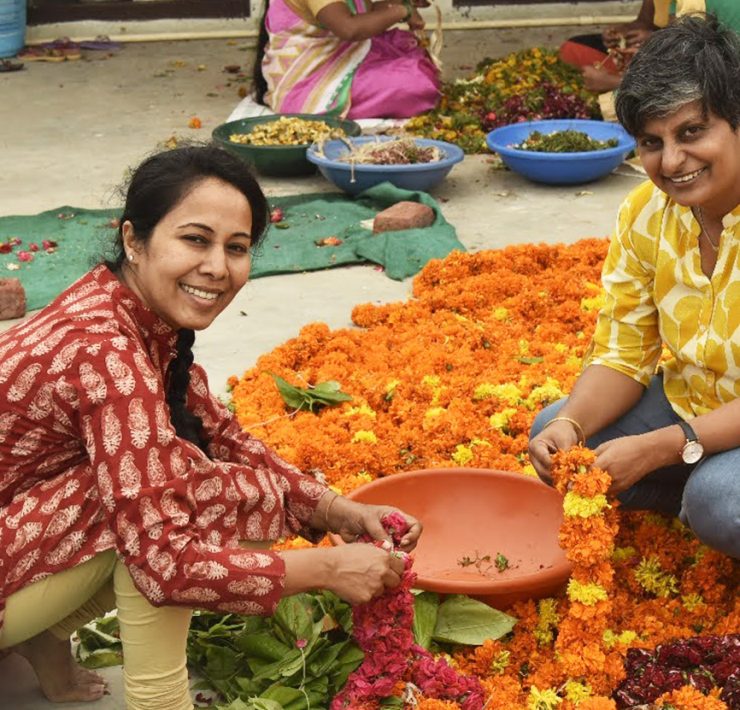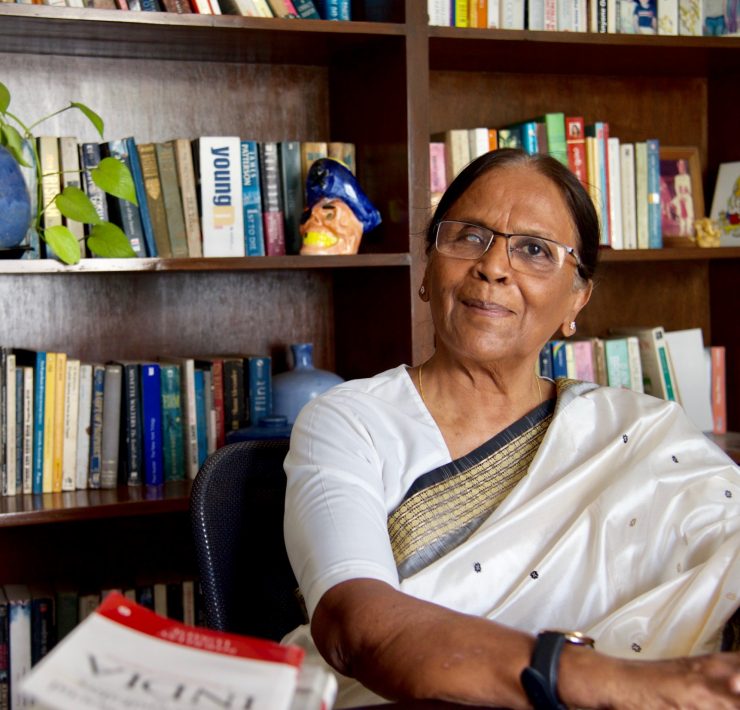Raising the roof
- Would the environment prefer that you drink your soda out of a can or a bottle? Turns out, it actually would rather you make lemonade from the many lemons it gives you.
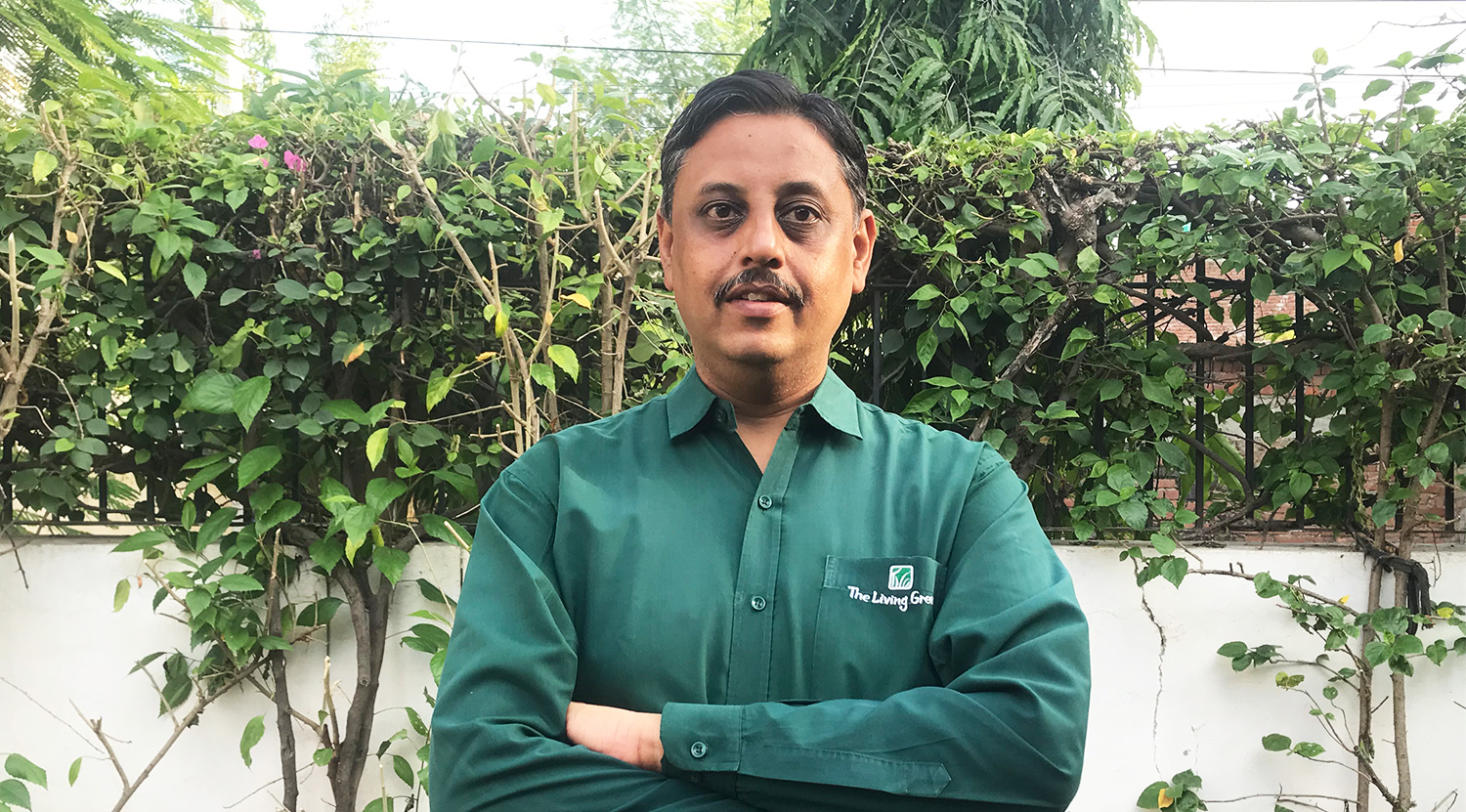
Nupur is a writer with 100 issues to learn and…
It was the year 2010. Prateek Tiwari, an agricultural engineer armed with a degree from the College of Technology and Agricultural Engineering in Udaipur, was visiting Bubli, a rural region in Rajasthan’s Kota district. On this trip, he met a farmer who — as he discovered — was growing crops for his family’s consumption on a smaller, separate patch of land, away from where the cash crop was being grown. The reason? He didn’t want the pesticides from the crops getting into what his family would eat. This revelation startled Prateek enough to make him reflect upon urban living and his own milieu.
“I was at the peak of my career at Walmart that year. But by May 2011, I had resigned from my job to start working on what would eventually become Living Greens,” says Prateek, who also holds a Masters in International Business from IIFT, Delhi. He spent the next two years creating and perfecting a DIY mobile farming system, with which he hoped to encourage every consumer to grow their own organic produce.
Today, you will find Living Greens’ mini farms on rooftops and other urban spaces not only in Jaipur, where the company is based, but across over 15 cities in India.
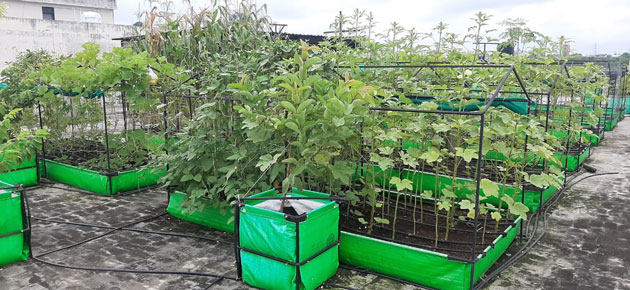
The Living Greens Portable Farming System (PFS) is essentially a greenhouse that is light and easy to handle. The containers are filled with an organic soilless medium, and clients are provided with a pre-designed kit containing 100 percent organic medicines to keep pests away. The team also provides online assistance to customers, where agri-experts help out with troubleshooting advice.
Why rooftops, primarily? “Rooftops are, by default, food growing spaces in urban India and form the largest chunks of unused urban spaces where there is potential to follow organic farming. But the product or methodology can be used in farmhouses, kitchen gardens, empty plots and any other space that is unused or abandoned. We would like to work with people by converting these unused spaces,” says Prateek.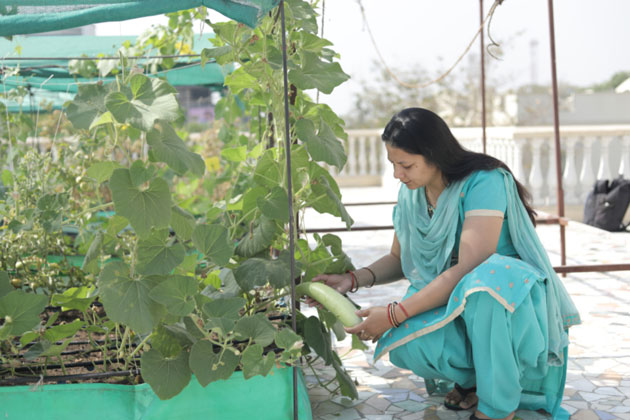
He encourages families to grow seasonal produce like gourds, cabbage and cauliflower, as well as spices and herbs using the PFS. Any fears that the rural heartland would disconnect itself from the urban milieu where farms come up on roofs, are shrugged off by Prateek. “Perennial vegetables like tomatoes, onions and potatoes are not grown on rooftops. Moreover, a city like Jaipur receives around 70,000 kgs of vegetables everyday. Even if community garden aficionados were to cover every rooftop in the city, it would not be able to scratch the surface of the quantity of vegetables required,” he adds.
While most associate Prateek’s work with rooftop farming, he is inclined to push the limits of the concept by celebrating organic farming in all kinds of urban spaces in India. Today, more and more people are staying in flats in urban areas. Prateek asks people to stand in the balcony of their flat and think out-of-the-box. If they can see an empty, unused space that can be used to grow vegetables, he encourages them to think of starting their own mini farms.
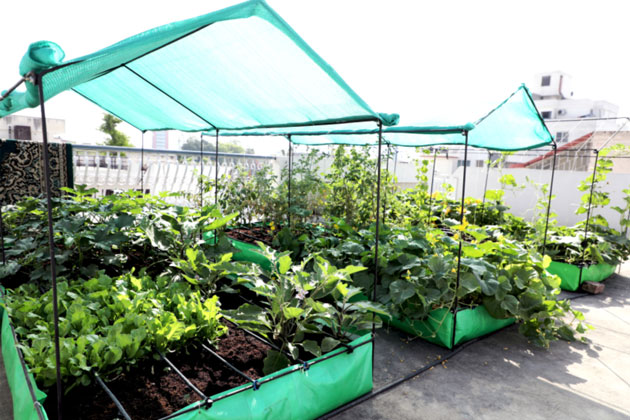
It could be any kind of space, just lying idle, waiting to be developed into a community farm. Giving an example, Prateek says, “I once visited a school in Mumbai, which had its students growing gourd on its massive rooftop. My vision for Living Greens is very simple. I want every single rooftop to be converted to a lush green organic farm.”
Nupur is a writer with 100 issues to learn and dream about. She chooses to write about harmony between nature and human ecologies when she is not pursuing other issues, or strumming the guitar for new songs.


